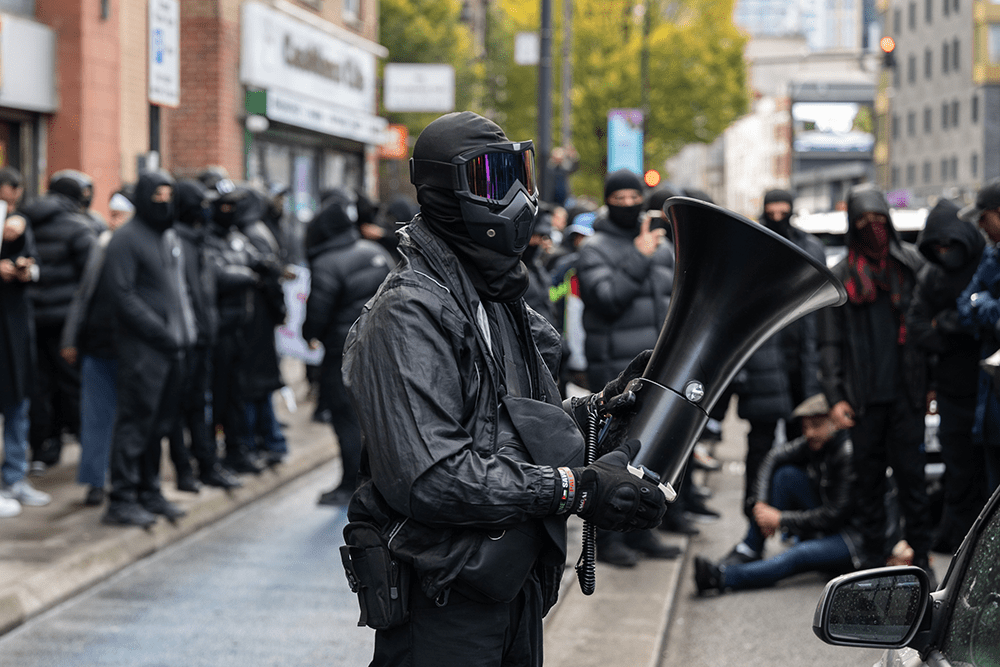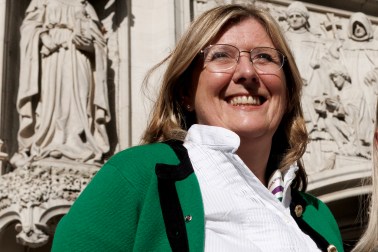In theory, I don’t care for actors – all that pontificating about climate change while taking private jets – but in practice, I find them great fun. One of my dearest friends, a small-screen siren, loves regaling me with tales of her shockers, like an American mini-series with a huge budget but an appalling script. ‘we were being housed in fabulous hotels, dined every night on fine food and wine so we shut up and took the coin. If you agree to do a job, even if you realise halfway through that it’s a pile, do it with good grace – learn from it and move on. But sometimes you have to consult your fellow actors and say “How the hell am I going to say this?” – it can create a great Dunkirk atmosphere.’
When critical race theory became a regular at the Rover’s Return, it was inevitable that there would be a rush for the exit
I think of this thespian dilemma whenever I tune into Coronation Street, which I once loved but many years ago began merely hate-watching. What coffee-fuelled convos take place between the cast members now deserting the sinking cobbles?
As the Sun recently reported: ‘Coronation Street used to be the jewel in ITV’s crown. Now it’s on its knees financially and bosses are being forced to make hard decisions; TV production costs have soared more than 50 per cent while the advertising market funding them has all but collapsed. The cast are not happy but ITV have no choice but to cut costs. Filming is tough; one moaned they were “worked like dogs”. The days of bumper pay are gone; there is a feeling more people will be cut to save money and to keep the best-paid stars on board.’ Apparently, salaries on Coronation Street vary significantly, with some older stars earning £2,000 per episode while young actors can expect less than a quarter of this. Somewhat surprisingly, members of the cast in need of more dosh have set up side hustles giving the public personal tours of the set. A source told the Sun: ‘Corrie are farming out £500 a day studio tour slots to cast members so they can earn extra cash at weekends and on their days off – it’s a good money-spinner for the cast, especially now budgets have been cut.’
There’s a reason why Corrie favours actors of pensionable age over cute young things, and that’s because they are increasingly rare reminders of a time when Coronation Street really was a national TV treasure – before it became a clown show on a ghost ship. When did the rot set in? I’d put it at around 2021, when Steve and Tim the cabbies had a discussion about ‘white privilege’; after that, there was no halting the clunky march of the tone-deaf do-gooders. There followed an inevitable loss in audiences who, for some weird reason, tune in to television after a hard day’s work to be entertained rather than lectured. When critical race theory became a regular at the Rover’s Return, it was inevitable that there would be a rush for the exit.
Once, Corrie was one of the few places where working-class women could see their fictional counterparts get the credit for being what they are: the thankless, heart-sore army that holds society together and still manages to laugh about it. Much of the dry Northern humour – especially the exchanges between Deirdre Barlow and her mother Blanche Hunt – was worthy of Alan Bennett. Now Corrie’s women are little more than interchangeable issue-havers, dealing with anorexia, bullying, cyber-stalking, early menopause, diabetes, pyromania, underage vaping, botched cosmetic surgery and sex-tape shaming as a kind of tag team of trauma.
I watched the most recent episode and compared the misery meter to one I noted in 2022. The earlier episode contained: discussion of how people shouldn’t be scared of asylum seekers; discussion of a child wanting to visit the murderer of his mother; character with diabetes looking peaky; falsely accused murderer sad about his daughter being a real murderer; character ‘called out’ for racism in Roy’s Rolls; white working-class boy brainwashed by Islamophobic rabble-rouser.
This latest one featured; tearful aftermath of knife killing of teenage boy by his brothers; sexy knicker factory boss succumbs to sepsis, which ruins her one good kidney; discussion of insomnia in Roy’s Rolls; innocent boy accused of said knife killing; children revealed as having made hoax ambulance call, thus making death of said teenage boy more likely; unpleasant prison visiting incident; brief child abduction leading to psychotic episode in mother; visit to shrine by two girls with murdered boyfriends.
Watching Corrie used to feel like eavesdropping on a couple of outrageous old matriarchs on the bus and wishing you could join their sew’n’snitch circle; now it’s like sitting in a doctor’s surgery reading out-of-date public health pamphlets. One reason for this may be the shift in cultural norms: the replacement of resilience by catastrophising. The creator of Corrie was a gay working-class man, Tony Warren, who based his female characters on those from his own upbringing in the 1940s and 1950s – ‘strong women who stood no argument’. In an age when Strong Woman has come to mean narcissistic wimp, it’s understandable that a show once described by the Royal Television Society as ‘the most successful television programme in British history’ might not be what it was.
Last year, a pair of Corrie’s teenage boot boys took to calling their victims ‘snowflakes’ – because thugs are really informed about the culture wars. A Northern friend told me: ‘I’ve run into scores of scriptwriters and backroom staff of Coronation Street in bars in Manchester through the years. A while back they were often gay hipsters and you could have a laugh with them. Now they’re all unbearably woke.’ Though as in other areas of life, the soaps are showing the first signs of rebellion: when asked by a boss if she thought her gender identity was being respected by her co-workers, the splendid nonagenarian Rita retorted, ‘I haven’t time for gender identity, I’m up at 5 for t’papers.’
There was always a great deal of affection towards Coronation Street in this country, mostly from people who never see their lives reflected wittily, as well as reportedly being one of the favourite TV shows of the late Queen. Would she recognise her robust, cheery people as the drips and thugs who populate Weatherfield now? ‘A story of working people,’ says the proud blurb on ITV Hub. It reminds me of Labour in 2019. The so-called Red Wall, that Northern belt of constituencies, fell to Boris because Labour chose to lecture rather than listen to what it believed was a captive audience. Starmer is now losing voters to Reform less than a year after winning the Red Wall back and those historic cobblestones are shifting. Writing of quiz shows here last year, Gareth Roberts – himself a writer for Coronation Street back before it became a bona fide tram crash – said, ‘They are the final cultural territory where we still find the unspectacular, the casually friendly, the harmless enjoyment of passing time. They do not lecture us, or try to change us, or scream in our faces. The rest of television could and should learn from that.’







Comments